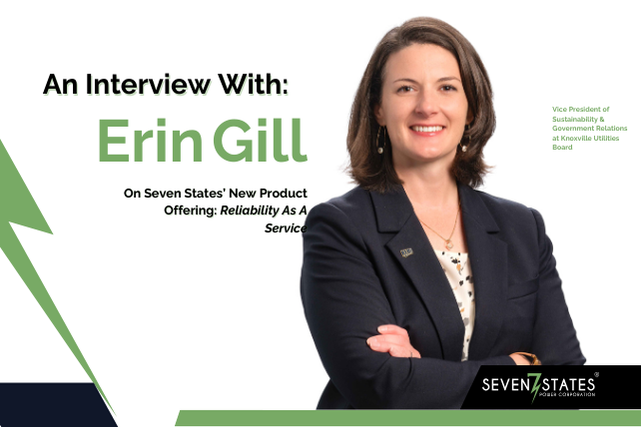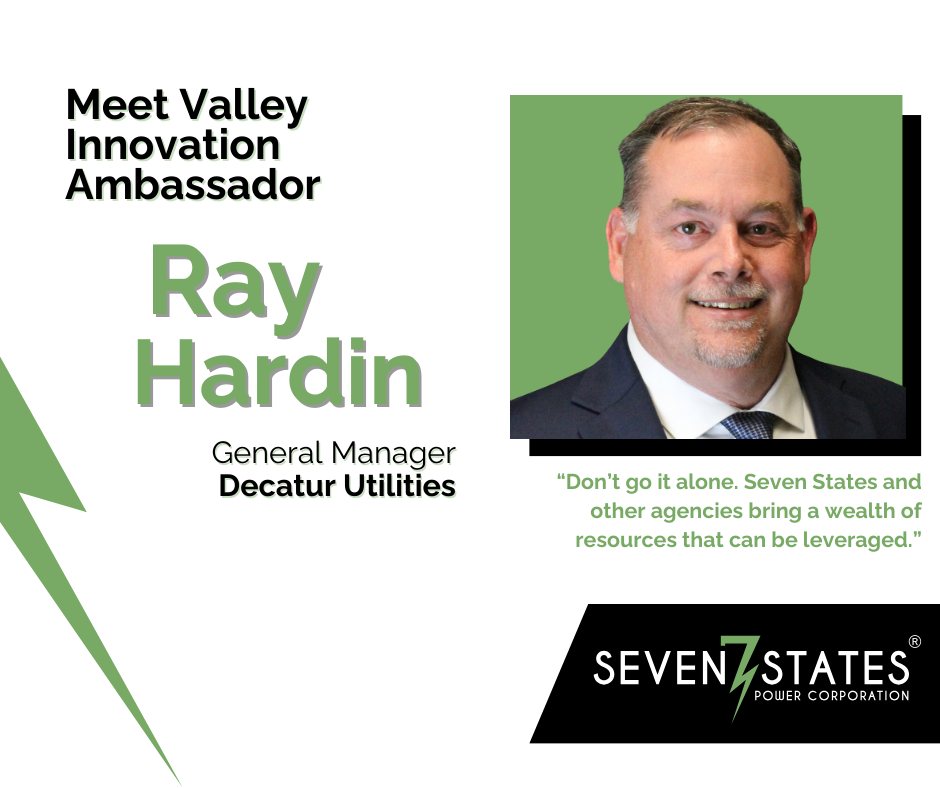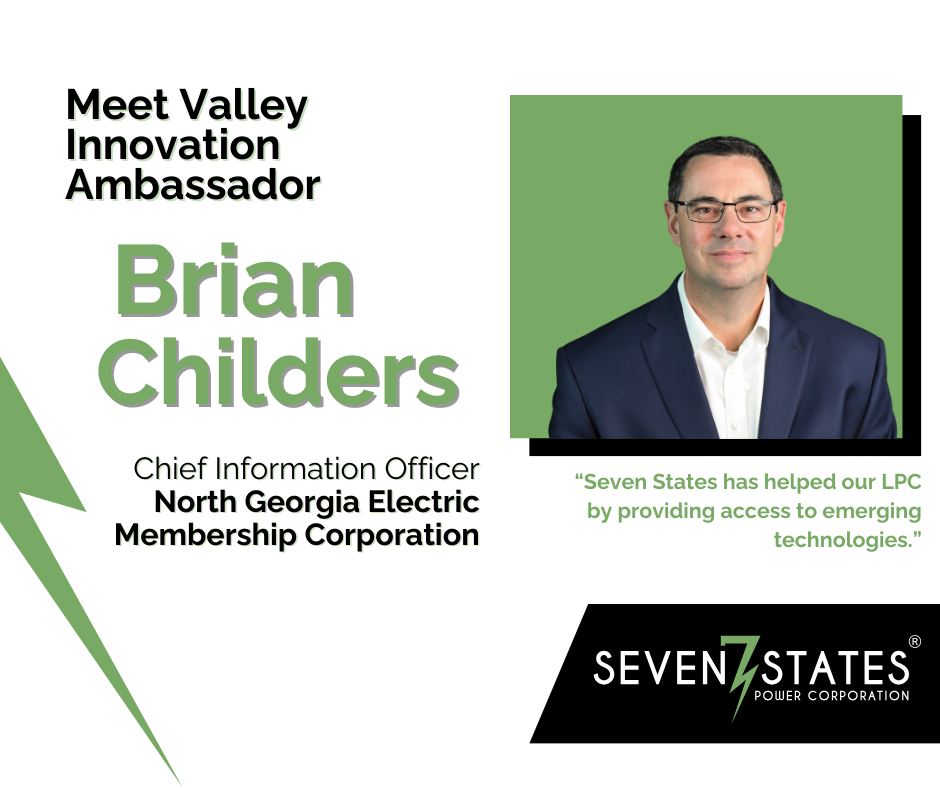
Driven by economic growth, increased electrification, and ambitious renewable energy targets, demand for electricity has surged, but the supply has been challenged with aging infrastructure and evolving regulations.
Luckily, at Seven States, we have a lot of great minds working together to proactively address this challenge. Moreover, we are ramping up our rollout of battery energy storage solutions and backup generation in an effort to achieve 300MW of additional aggregate capacity across the Valley. We recently had the opportunity to gain insight on this important issue from industry expert and incoming Seven States board member, Erin Gill.
Gill currently serves as Vice President of Sustainability & Government Relations at Knoxville Utilities Board. As she assumes a role on the Seven States Board of Directors, we asked her to reflect on a few questions about Seven States’ Reliability as a Service as we close out 2024 and look forward to 2025.
Why do you think it’s important to focus on Reliability Services, specifically Battery Energy Storage Solutions (BESS), at this point in time?
Battery storage is increasingly emerging as a critical resource for local power companies aiming to enhance energy reliability, especially during peak demand periods. By deploying battery storage systems, local power companies can manage fluctuations in electricity demand more effectively, store excess energy generated during low-demand periods, and release it when demand surges. This not only helps stabilize the grid but also reduces the need for expensive peak power purchases. Battery energy storage solutions also allow local power companies to improve resilience by maintaining service during outages or disruptions, which is especially valuable in regions prone to extreme weather events or grid vulnerabilities.
Is it possible to scale this solution and, if so, what does that mean for how we build and connect to the grid of the future?
As battery technology advances, scalability becomes more achievable, making it a viable option for power companies of all sizes. Implementing battery storage solutions can also support the integration of renewable energy sources, such as solar, by storing intermittent energy and providing a reliable backup when these sources are not actively generating. This synergy between battery storage and renewables enables local power companies to expand clean energy use without compromising on stability or reliability. Moreover, battery storage offers long-term cost-saving potential by reducing dependence on non-renewable peaking plants and minimizing transmission losses, ultimately benefiting both utilities and customers with cleaner, more stable energy options.
What role is Seven States playing in designing, developing, and deploying these technologies into the energy ecosystem?
It was exciting to see the BESS unit installed at Montgomery Bell State Park during our Annual Meeting. This unit, and others like it, demonstrate what is possible as we connect these solutions to the grid. Building on the efforts of early projects like EV chargers, solar canopies, solar consulting, and microgrids, Seven States is using what they have learned to grow and scale these solutions faster. At KUB, we’ve appreciated Seven States’ support for several local efforts to adopt new types of technologies and meet the needs of our customers today with an eye toward the future.
Do you have any closing thoughts about what NOT developing and deploying these technologies means to the energy industry?
Energy technologies and customer needs are evolving rapidly, and electric utilities in the Valley must be ready to incorporate new practices and technologies in order to ensure we can continue to meet growing demand while keeping energy services affordable and reliable. Renewable energy, battery storage, demand response, and other distributed energy resources aren’t just “nice to haves.” Utilized strategically, these resources can be cheaper and more nimble than more traditional energy resources. By using them wisely, LPCs can help keep energy affordable while providing ancillary benefits for local infrastructure and for utility customers. It is for all of these reasons that Seven States plays a vital role at a critical juncture. The work they do allows LPCs to work simultaneous paths to efficient and effective solutions. Their partnership in the industry will help us all “keep the lights on.”




